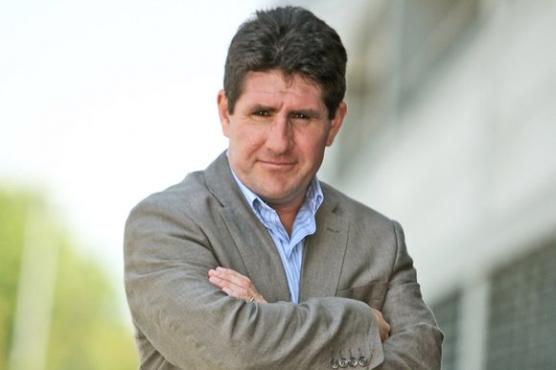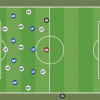In the midst of the euphoria surrounding Conor McGregor’s championship victory at UFC 189, Paul Kimmage bucked the trend by describing MMA as "barbaric" and claiming to be "repulsed" by the sport.
MMA is not for everybody. Thankfully, those who don’t aren't forced to watch. In truth, unless you have paid subscription to a particular sports package, it can be difficult to find MMA events on television.
While I can understand his sentiments, unless you have attended local Irish MMA events or watched entire UFC cards, you won’t fully appreciate what the sport is all about.
I’m not for a second saying you have to be a black belt in some martial art or a hardcore fan to "get it". But if you’re relying on highlight packages and clips from the end of a fight, like McGregor's on Saturday night, you are only getting to see a small portion of what MMA is.
Typically the end of a fight or a highlight package contains the more provocative scenes. You’ll see cuts, lumps, bruises and probably someone getting knocked out. To assume this is how every second of every fight goes is incorrect.
For example, at UFC 189 in Las Vegas, there were 10 other fights before the main event of Conor McGregor versus Chad Mendes.
Four of them were complete snoozers. They lasted all three rounds and were decided on the judge’s scorecards. I can promise Paul he would not have been repulsed by these fights but probably curious as to what was happening and maybe even a little bored; nothing barbaric to see here.
Two of the fights ended in submissions, where the defeated man tapped out. He admitted defeat and ended the fight at his own request. Is MMA barbaric if a fighter can opt to surrender during the contest? I would think that’s the opposite of barbarism.
Three fights were stopped by the referee. In each of these situations the referee deemed one fighter was not offering up enough defence and called a halt to proceedings.
McGregor's fight was stopped three seconds before the end of the second round. A brave call by the referee as some people have suggested he should have let the fight go for the short remainder of the round and let Mendes recover on his stool.
However, the referee preferred to err on the side of caution and call the fight off.
One fight ended in a knockout and the other fight was a competitive three round affair that again required the judge’s scorecards.
The fight between Rory MacDonald and Robbie Lawler was particularly brutal. It ended in a referee stoppage but not before they had beaten the proverbial "seven shades" out of each other.
Calling MMA barbaric is the equivalent to calling the Tour De France one big bike crash.
During RTÉ Radio 1′s Today With Sean O’Rourke, Paul discussed a crash in the Tour de France in which the rider William Bonnet was "ripped to shreds" because of a fall.
Bonnet was forced to quit the Tour due to the extent of his injuries. “That’s part of your job and you accept it as part of your job," the Sunday Independent columnist maintained.
I’m pretty sure fighters are the same as cyclists. They are aware of the dangers associated with their sport and accept them as the occupational hazard of being a fighter.
Also on the show with Kimmage was freelance sports writer, Orla Bannon. She summed up the appeal of sports to competitors and fans quite comprehensively and succinctly.
“There’s no big mystery to it, these guys do it because the love and you don’t have to get on a bike or a horse to suffer serious injury we see it all the time in rugby matches and on all our pitches up and down the country.
"Guys are risking life and limb and they do it because they love it and we all love watching them do it, that’s why we turn it on," she suggested, before Paul agreed with her point.
Maybe there’s a perception that MMA is asking too much of the athlete; it’s just too violent and dangerous.
The bottom line remains that any serious injury or death in sport is tragic. Rather than printing a league table of sports with serious injuries to see which has a better or worse track record than MMA, I’ll offer the Fermi Paradox.
The Nobel Prize winning physicist, Enrico Fermi was having lunch at Los Alamos National Laboratory in 1950 with a number of colleagues. Through the course of their lunchtime discussion they all agreed that the probability of extra-terrestrial life out there in the universe was quite high.
As the probability estimates were getting higher and higher, Fermi then asked the question, "So, where is everybody?"
The greatest minds of the day had convinced themselves that aliens were out there, yet nobody had seen any.
There are MMA events every weekend, all around the world. If the sport was indeed as dangerous as the critics would suggest, surely there should be a body count to reflect it. MMA is a contact sport, people will get hurt, just like in every other contact sport.
If you don’t like it, you don’t have to watch it.
While I understand Paul’s displeasure at watching MMA, I’m baffled by his comments questioning whether the mainstream media engage with the sport.
"I’m intrigued by it,” Kimmage said. “I’ve been asking about it now for a long time as whether we should engage with this because there is a lot of pantomime to it. There's a lot of show."
To be clear, the mainstream media are playing catch-up with MMA. The popularity of MMA and in particular the UFC has little to do with mainstream media.
Fans of the more traditional sports grew up watching their game on TV. MMA fans didn’t have that luxury. The internet was the only place you could find out about the sport and events if you weren’t in the arena.
The UFC has been particularly active and ingenious in using digital media to spread their word.
Their YouTube channel created in 2006 and has over two million subscribers. They have posted over 4,000 videos to the channel that have been viewed almost 700 million times.
Their latest venture is a digital platform to broadcast their content. This circumvents the need for a TV deal. ‘Fight Pass’ subscribers around the world can now watch UFC events and other content regardless of whether there is a TV deal in their region or not.
Twenty years ago mainstream media coverage was essential for a sport to survive and thrive. In the last ten years the UFC has proved you can not only survive without it you can thrive by using digital solutions to reach your fans as an alternative.
Three years ago not a single mainstream media outlet was covering MMA in Ireland in any meaningful capacity.
Conor McGregor has lifted the lid and forced the mainstream to sit up and pay attention. Whether they choose to engage is another issue.
Online Editors
















